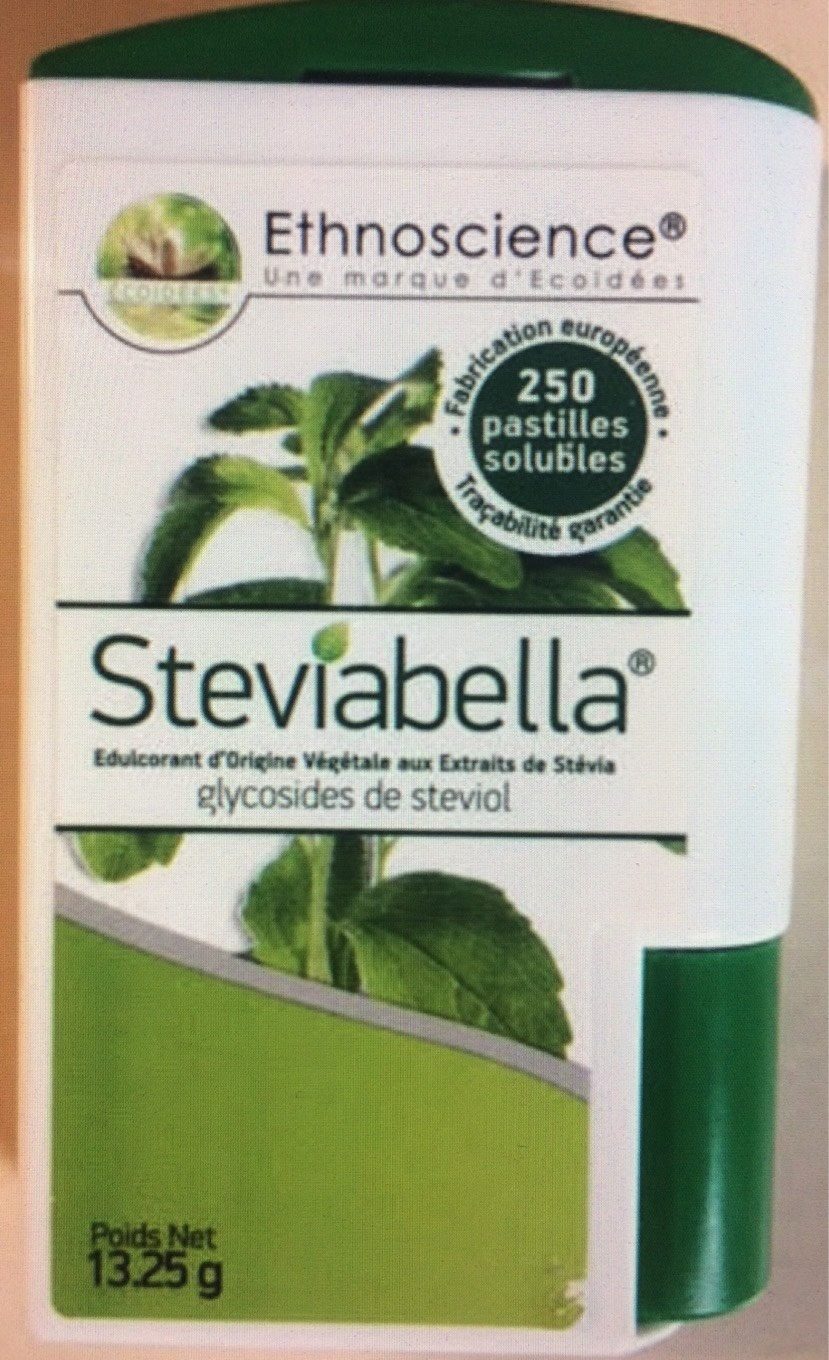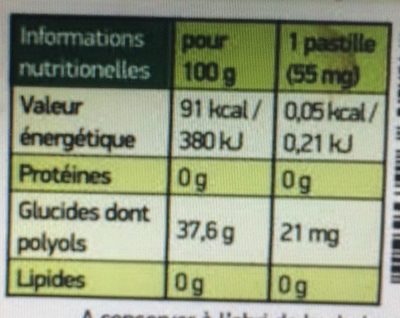Stévia blanche - distributeur pastilles solubles, marque "Stéviabella" - 250 pastilles - Ethnoscience - 13,25 g
This product page is not complete. You can help to complete it by editing it and adding more data from the photos we have, or by taking more photos using the app for Android or iPhone/iPad. Thank you!
×
Some of the data for this product has been provided directly by the manufacturer Ecoidées. - Customer service: info@ecoidees.com 0388805975
Barcode: 3760087360943 (EAN / EAN-13)
Quantity: 13,25 g
Brands: Ethnoscience, Ecoidées
Brand owner: Ecoidées
Categories: Frozen foods, Sweeteners, fr:Alimentation>Epicerie sucrée>Sucres et alternatives
Countries where sold: France
Matching with your preferences
Environment
Packaging
Transportation
Report a problem
Data sources
Product added on by kiliweb
Last edit of product page on by quechoisir.
Product page also edited by julie-yuka, openfoodfacts-contributors, org-ecoidees, solveig-yuka, teolemon.









